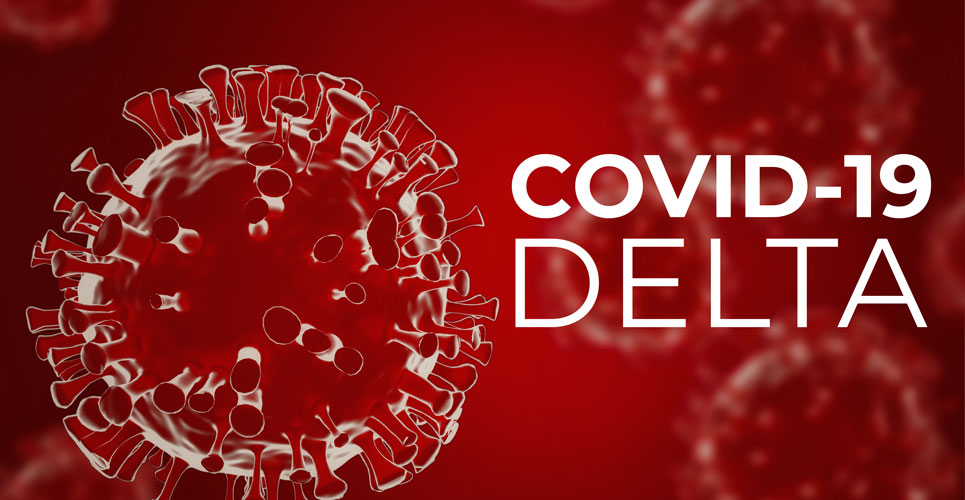Similar viral loads in vaccinated and unvaccinated individuals with the COVID Delta variant, imply that both can transmit the virus.
Vaccination against COVID-19 reduces symptom burden and duration of any associated illness. The appearance of new COVID-19 variants, in particular, the COVID Delta variant is potentially problematic although an analysis by Public Health England, has shown that vaccination reduces the incidence of hospitalisation in those infected with the Delta variant. In addition, a further advantage of vaccination, reported in updated advice by Centers for Disease Control and Prevention (CDC) in the US, indicates that full vaccinated individuals are less likely to transmit the virus onto others. However, despite this reassurance, there are emerging concerns, particularly from Israel, that the reported effectiveness of COVID-19 vaccines has reduced to 64% with regard to both prevention of infection and symptomatic illness. Interestingly, this reduced vaccine effectiveness appears to coincide with the spread of the COVID Delta variant in the country. This is of concern given how it is thought that the COVID delta variant has an estimated 60% higher risk of household transmission. Thus, some uncertainty remains over the effectiveness of vaccines against the COVID Delta variant and the extent to which the risk of transmission is reduced.
Potential for increased transmission
In light of this uncertainty, the CDC has released data captured from an outbreak of COVID-19 during July 2021, associated with large, public gatherings, in Massachusetts. During the month of July, 469 cases of COVID-19 associated with multiple summer events and public gatherings were reported. The reported vaccination coverage among eligible Massachusetts residents was 69% but the majority (74%) of symptomatic infected cases occurred in predominately (85%) male patients with a median age of 40 years but, who, interestingly, were all fully vaccinated.
From the 469 infected cases, 133 patients provided samples for genomic analysis, of which, 89% were due to the COVID Delta variant. Fortunately, only 5 people required hospitalisation (4 of whom were fully vaccinated) and no deaths were reported. PCR cycle threshold (CT) values, which represent a measure of the concentration of viral load present in a sample, were taken from 127 vaccinated and 84 unvaccinated individuals and the median CT values were 22.77 and 21.54 for the vaccinated and unvaccinated individuals respectively. In order words, given that the transmissibility of COVID-19 is known to be dependent on viral load, it would appear that infection with the COVID Delta variant, even among fully vaccinated individuals, could still lead to appreciable transmission of the virus.
Based on these findings, the CDC has now suggested that prevention strategies such as mask wearing should continue indoors, irrespective of vaccination status.
Source. Morbidity and Mortality weekly report. CDC 2021

